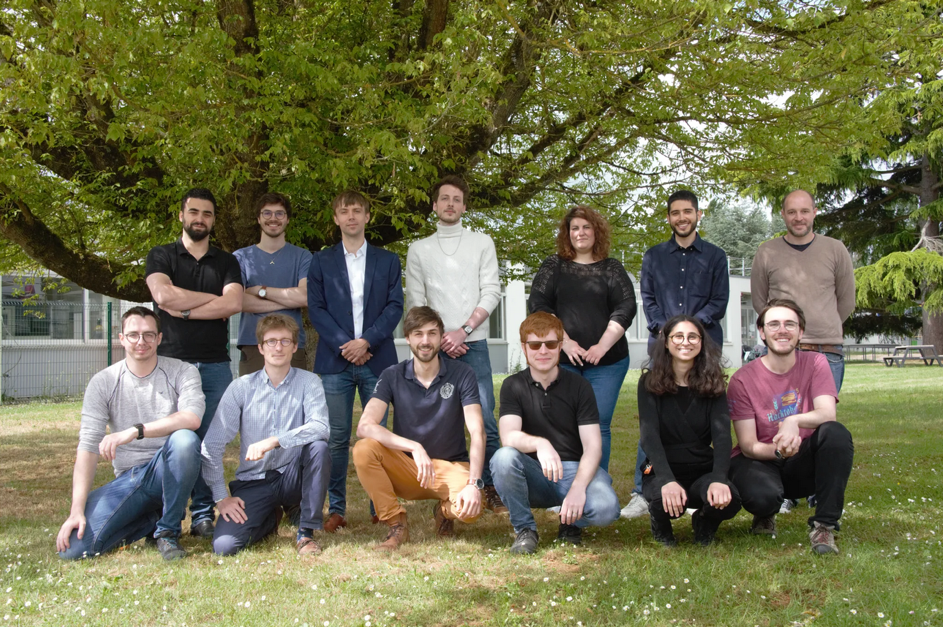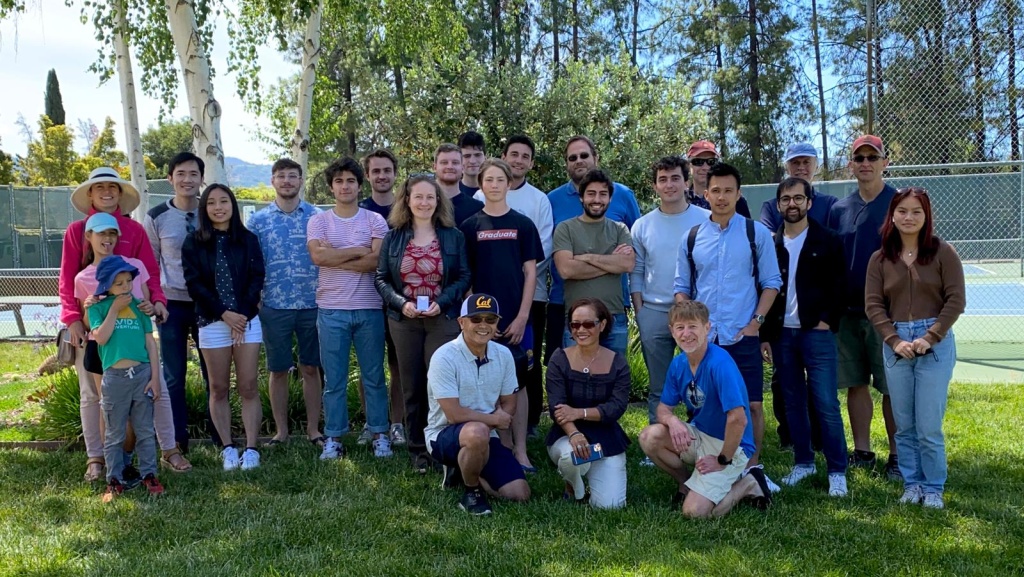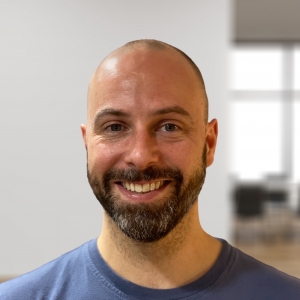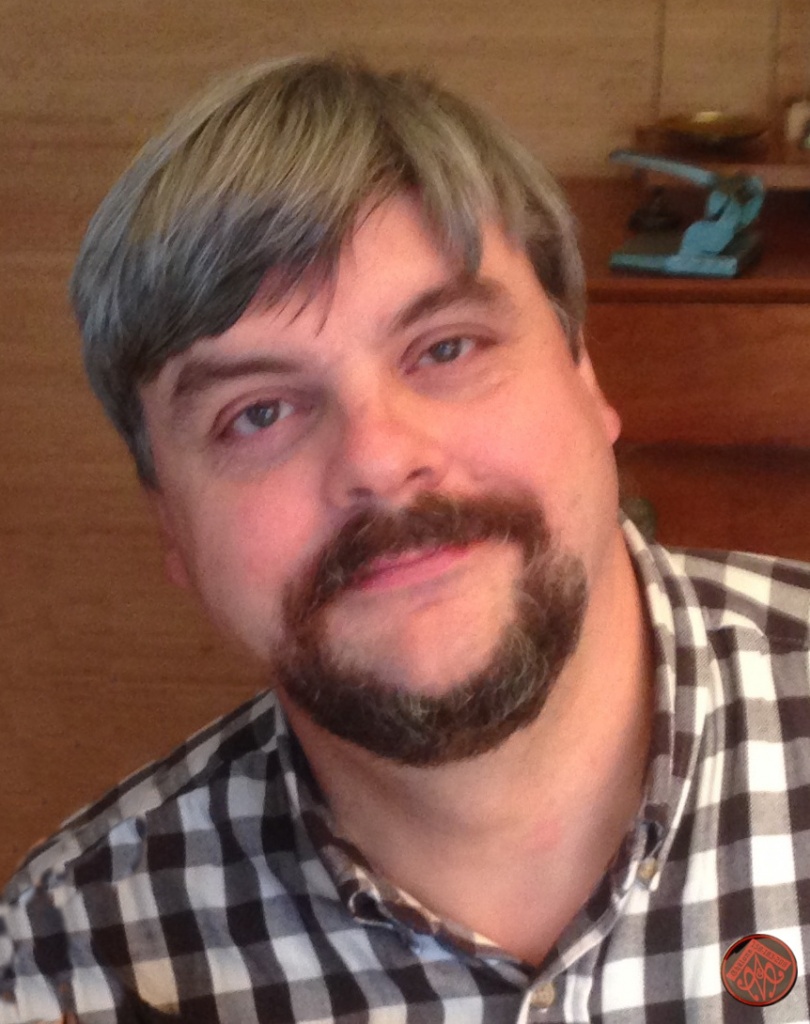- Details
Climate change is happening. We decided to launch a “Green and Clean” interview series to ask our alumni working in environmental careers how their companies and their work can lead us toward a greener future.
AFAM: Hello Julien. You are a R&D engineer at a French startup named Airthium. Please tell us more about your company and your job.
Julien: Hello and thank you for your interest. Heat pumps are a great technology for affordable and low carbon heat production, but existing solutions are limited to 200°C (400F). Airthium is developing a ultra-high temperature heat pump that will reach 550°C (1000F). This improvement will enable us to decarbonize new industrial processes, such as drying or steam generation, for various industries, such as paper, cement, chemicals, glass, mining, food and some heat networks.
My job at Airthium is to build a working prototype of a modified Stirling engine, capable of pumping heat at these temperatures. Another goal is to master a new process named Fast Near-Isothermal Compression. This would enable record-high efficiencies, and thus more energy savings.
AFAM: how did you break into this industry? Was it just a coincidence or a logical path in your career?
Julien: During my studies at Arts et Métiers, I led a team of 15 students that worked on a home hydrogen refueling station for cars. I started a company to study its commercial potential, but found that despite a record low price for a hydrogen station, it was not competitive enough against batteries.
When I was looking for an internship at the end of my degree, I had the opportunity to talk with Airthium executives about hydrogen compressors, which were a key technology in their previous research as well. By the end of the meeting, I had an internship at Airthium
AFAM: what do you enjoy the most about your job?
Julien: While trying to fight climate change at a large scale is of course satisfying, I especially enjoy following a technical project through all steps, from conception and manufacturing to assembly and testing.
AFAM: what is the most challenging thing about your work?
Julien: An experienced welder who worked on a part I designed at Airthium, told me that it was his most stressful job since he welded parts in the space industry. The reason for such difficulty is that I have to monitor many additional physical parameters during the R&D phase. There are also many constraints on the sensors we can use, such as operating temperature and pressure, with limited available space.
AFAM: How did Arts et Métiers prepare you for your current work? How does being a Gadz’Arts help you in your everyday tasks at work?
Julien: Doing R&D on a Multiphysics systems requires a deep understanding of various scientific fields, while mastering a wide set of skills. Arts et Métiers gave me both, plus the capacity to fill in any gaps by looking into literature. The Entrepreneurship and Technological Innovation course also gave me a taste of the fast-changing startup world.
While my two years of classes préparatoires gave me a solid scientific background, I would not have been able to manufacture a first prototype without the classes and projects I had at Arts et Métiers.
Finally, being a Gadz’Arts is helpful for introductions when I need extensive data from a company on their industrial process, which helps Airthium to evaluate its target market, and find potential customers. The Gadz’arts network is wonderful for helping each other and sharing information, and I am grateful to be a part of it.
AFAM: thank you Julien for your time

Photo: Airthium team (courtesy of Julien)
About Airthium
Airthium is a startup company headquartered in the US and operating in France with 12 employees, among which 6 PhDs. We are backed by Y Combinator (prestigious US startup accelerator), Accel'air (Air Liquide's accelerator, where we have our current lab) and personalities like Philippe Kavafyan (CEO Aker Wind) and Jérome Pécresse (CEO GE Renewable Energy).
Our team develops a very high-temperature industrial heat pump (up to 550°C) able to tackle 3% of global CO2 emissions (1 Gt of CO2). There is currently no green solution to economically decarbonize industrial heat production between 200 and 550°C.
We are launching a 2nd crowdfunding round of $5 million to accelerate the development of our technology, notably by moving to an industrial warehouse in September and supporting the current build of our 1 kW prototype.
Climate is changing fast, but there is still a chance to act !
You can invest in Airthium at https://wefunder.com/airthium and help us decarbonize our planet.
If you wish to know more, do not hesitate to make an appointment with us via our calendar https://calendly.com/airthium
- Details
In a few days our parcours US students will start their master's programs in the American Universities. This year 100% of our parcours US students were admitted to American universities! Congratulations!
What are some advice we can be giving them today, just a few days before the classes start?
- Work hard and stay focused!
- Reach out and ask questions!
- Form study groups, go to office hours - anything you can do to add to your learning in class
- Meet people, socialize with your classmates!
- Find ways to connect with people early in the semester
- Connect with the Career Center and go to Career Fairs as Employers will be looking for Interns!
- Have Fun!
- Last but not least, contact AFAM and your regional groups to say hello! Sign up for AFAM newsletter and stay in touch with other gadz'arts in the US
Good luck to all of you and see you soon!

Picture: Some members of our gadz'arts community in SF bay area including several of our UC Berkeley ( parcours US) students
- Details
September 2022 is announced as Shasta month. This month we will be talking about our program Shasta and our students and mentors.
Here are some recent testimonials and thank you notes from our students who pursued the program:
Testimonial #1:
"The Mentor in the Shasta program is for me an incredible person who sacrifices his personal time for you, asking nothing in return but respect. He or she helps you cross that all-important crossroads where you arrive to launch yourself into the professional world. Your mentor will help you prepare yourself to find the internship that suits you best by helping you create a professional image (Portfolio, Resume, Linkedin, ...) and by training you to pass the interviews to get your internship.
For me, my mentor was a support and a source of experience that I needed to succeed in finding my internship in the United States. A big thank you to you Marc!"
Testimonial #2:
"Through AFAM, I was able to connect with a mentor and other American alumni. They gave me a clear idea of the American job market and its expectations. It is a unique opportunity to become familiar with these concepts in order to better prepare for future stays."
Testimonial #3:
"I really appreciated working with my mentor, Marianna. During several months she helped me build a strong profile that met American job market standards.
She also gave me essential tips and insights of what it is to work in the US as an intern. All along the program, I really felt supported and encouraged, and I will always be grateful for the time she took to help me achieve my goal. The American experience is not for today, but those last months were not vain. I’m convinced that everything I have learned through the Shasta program will be very useful as I intend to do a VIE in the US after graduation."
Testimonial #4:
"Doing a nuclear internship in the US is not an easy task but my mentor and AFAM helped me navigate the complexity of the US system. Not only they elucidated the process of admission, but they also explained to me the landscape of the nuclear sector and its pros and cons. I ended being accepted to do an internship at MIT in the field of micro-reactors, but decided to refuse the offer ...... as I will be going in April for a internship in the development of the EPR being constructed in England.
I would like to thank again both Pierre-Alexandre (Shasta mentor) and Albina (community manager) for their help and I definitely recommend the program to students wanting to come to the US. As I still want to live the US/Canada experience, I will try again next year and will be looking for a job as a nuclear engineer."
Testimonial #5:
"I thank my mentor for his coaching and his valuable experience of American practices and the differences with the French job market. This allowed me to be more prepared for the interviews I had."
Testimonial #6:
"My mentor helped me tremendously in my search for an internship, whether it was explaining to me the notable differences in the industry between the US and France or adapting my resume and cover letter to a new environment. Thank you again for this opportunity."
Testimonial #7:
"I learned about the Shasta program by contacting the American Friends of Arts & Métiers (AFAM) in order to find an internship or VIE at the end of my studies at Arts et Métiers. I was put in contact with Albina Patou (community manager) who told me about the Shasta program. Albina helped me a lot in terms of how to communicate my application to companies, what form my application should take and which companies to turn to. This allowed me to avoid wasting time in my research and to select only those companies that would interest my future employer. With this in mind, I created several English CVs and wrote an online portfolio in order to maximize my chances of finding a job."
To know more about our Shasta program, please visit Shasta For Students and Shasta For Mentors pages of our website

Picture: Internship by Nick Youngson CC BY-SA 3.0 Alpha Stock Images
- Details
To know more about our Yosemite mentors, please go to our website

- Details
AFAM: Hello Michel and thank you for finding time to answer some questions. You have been living in the US since 1988. For more than 28 years you have been the CEO of Edge LLC. Please tell us a few words about yourself!
Michel: I moved here in 1988 indeed to start a company to distribute and create video games, as part of an international group of companies. In 1989 I also expanded the effort to Asia, in particular Japan.
That group eventually became a huge international video game group, with many studios and worldwide distribution. As such I had to manage internal cohesion (cultural understanding and differences, communication, processes and procedures, etc...) to make sure that we remained focused and efficient despite the diverse culture we were evolving in (cultural tastes, companies in many places in the world with very different cultural habits, employees from purely creative minds, to purely business like)
I also spent many years developing companies for operations and international development, focused a lot of my fundamental studies on strategy (how a company should be structured and principles under which it should operate to be coherent, efficient and thus successful) and on the cognitive science of decision making (and thus "expertise", experience, decisions models, etc..).
I also spent time on human interface development as a corollary to decision making science.
AFAM: This year you decided to join the AFAM team by becoming one of the Yosemite mentors. How come you joined this initiative? How do you see your role?
Michel: Well I started the initiative (Yosemite program) because having been in business development most of my adult life, I feel that there is much we can contribute to the gadz community. It is one of the weakness in our schooling, and one of the weakness in France (compared to USA). So, I feel that not only it needs to be demystified, as it certainly not as difficult as most people imagine, and we need to clarify the basic concepts for current gadz'arts to take the entrepreneurship route. Furthermore, it is a matter of survival, being an engineer is great, but to be the engine to drive innovations, new companies, new paradigms is even better, more interesting and very contributive to the economy at large (create new technologies, new jobs and so on).
So, Yosemite was created to not only educate as many people as possible in our community about entrepreneurship, but also to help anyone as much as we could since quite a few of us actually have direct experience with the subject matter (entrepreneurship and USA).
There is also a more personal objective that one first learns by listening, and experiencing, then one progresses by teaching said skills and experience. The third stage is to live it through the eyes and experience of others, when all the teaching has been done and refined, and find out what the "students" do with it, always hoping the student will then surpass the teacher. That is a fully enriching experience.
AFAM: Did you already act as a Yosemite mentor? Can you tell us more about it? What kind of mentees do you expect to join the program in the future?
Michel: I wish people would better understand what we can offer and not hesitate to use it.
Maybe I am over-optimistic as to how many people may have potential entrepreneurship envies or ideas, but I hope it's more, and will be more in the future. I really hope that a lot of people thinking it is super difficult, as it sometimes seems, would be open to understand that, in particular in the USA, it is much easier than it sounds, that a few basic principles are just what is needed, and then they launch themselves. The US ecosystem is particularly favorable to entrepreneurship, it should be understood and used.
And certainly, so by our gadz'arts community. We have all the tools to be extremely successful, from the capacity to think and learn, to broad technical education. All the hard learning is already done.
Don't misunderstand me, not everyone can be an entrepreneur, there are fundamentals traits that cannot be avoided to become successful, such as optimism, but a lot more people can be entrepreneurs, a lot more than think they can be, especially in our community.
AFAM: As an entrepreneur yourself, what piece of advice would you give today to gadz’arts willing to embrace an entrepreneurship career? Or maybe to those who dream of being entrepreneurs in the US?
Michel:
It is very difficult to generalize; each case is different. But if I had to give ONE advice, it would be:
A company is so simple at the end of the day, it's a "product" (product or service, or ...), for which one has to find customers (sales and marketing), and for which one has to make sure that it sells for more than it costs to create (R&D, sourcing, manufacturing, etc..).
It is just that simple, everything else is always back to said fundamentals. People should not make mountains out of it, and they should just start and keep going, "just do it".
The USA makes it a very easy ecosystem, as failure is tolerated, even encouraged, so there is no stigma in trying and failing (Chapter 11 or others). And trying and failing is the way to learn, become better and develop a new business model when needed.
It is also an ecosystem where entrepreneurship is well ingrained, understood and accepted by all the other actors (banks, investors, partners, etc..) so that makes it easier too.
Now for gadz'arts, as engineers, there is one particular culprit that is a natural tendency, that needs to be understood and "controlled" in order to succeed. It's not about the "perfect" product, it's not even about the "best" product. A good product (that answers a need) is good enough as long as what I wrote above stands (I can develop the market, and I can sell it for more than it costs me).
There are strategic cases where the "perfect" or the "greatest" product may be the focused engine, but that is not a common case, it's actually more of an exceptional one, and if such, then the whole company strategy needs to be in line with that very particular strategy, to become successful. It's a whole other vast subject.
The equation best product => (therefore) sales are/success is automatic, is just not true.
The real equation, as frustrating as that may be for us engineers, is typically the best sales and marketing strategy, with a "sufficiently satisfactory" product, is what works.
Never mind that "best" or "perfect" are either a subjective concept to start with (every product has good points and bad ones), or that it just doesn't exist (it is so tuned to a specific application, that either better can be created, or if the application is slightly evolving, then the product is too specific to remain "best" or "perfect").
We may not like that, or we may not agree with it in principle, but that is nevertheless how the world turns, so it should be understood and factored in the equation.
That is not to say that thriving for excellence (in products) is not a good endeavor, but it is to say that it's not THE only key to successful entrepreneurship. I would even go so far as to say that it's a whole different endeavor than entrepreneurship (more like scholar research, or fundamental research). Successful entrepreneurship is always about "sufficiently satisfactory excellence". The excellence is in the execution as a whole, not solely the product.
AFAM: thank you very much!
To know more Yosemite and to join the program, please contact us
To know more about our Yosemite mentors, please go to our website

Photo courtesy of Michel

 BLOG /
BLOG /  CALENDAR /
CALENDAR /  DONATIONS /
DONATIONS /  MENTORS /
MENTORS /